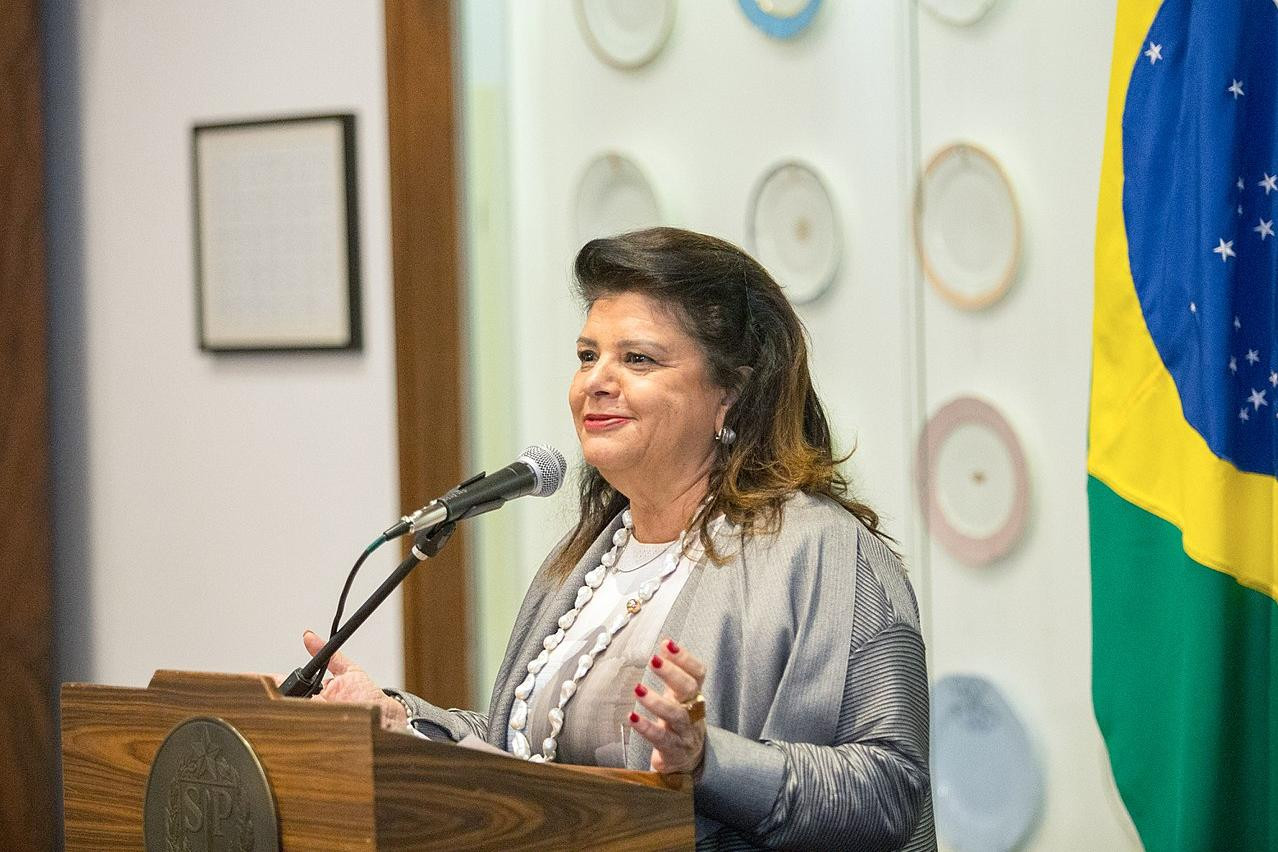
Date: 2025-12-21 Page is: DBtxt003.php txt00021577
BRAZIL
SOCIAL IMPACT
Luiza Trajano ... the Brazilian Billionaire Who Defines Social Impact
SOCIAL IMPACT
Luiza Trajano ... the Brazilian Billionaire Who Defines Social Impact

Luiza Trajano ... Image credit: Government of the State of São Paulo via Wiki Commons
Original article: https://www.triplepundit.com/story/2022/Luiza-Trajano-social-impact/735236
Burgess COMMENTARY
Luiza Trajano is someone everyone should be talking about ... running a very successful business and making good use of her wealth is going to be the key to a better world. This business model needs to be the norm rather than the exception ... and this sort of story should get into the news.
Sadly most of the news is populated by bad news stories. Pulling together stories about what is bad in this world is far easier than getting news about the many things that are in fact good in this world. If all the powerful and wealthy people in the world were subject to objective assessment of their conribution to socio-enviro-economic progress ... good and bad ... then we would be a long way forward towards a system that works!
Thank you for getting this great story to me!
Peter Burgess
Words by Leon Kaye
JAN 24, 2022
In case you missed it, she made the Time 100 most influential people last year. But Brazilians has been familiar with Luiza Trajano and her accomplishments for far longer. An attorney by trade, she took what was once her parents’ retail store and built it into the department store giant, Magazine Luiza (also known as Magalu), which boasts more than 1,400 locations, 50,000 employees and garners more than $5 billion annually in revenues.
With that track record of success comes a commitment to social justice that is unmatched by any CEO or chairperson out there.
There’s her commitment to women’s empowerment, embodied in her role launching Grupo Mulheres do Brasil (Women of Brazil) a decade ago. With almost 100,000 members, the organization focuses on equal rights, fair access to education and improved healthcare for Brazil’s women.
On the subject of healthcare, she has been relentless in boosting Brazil’s COVID-19 vaccination program, rallying the private sector to raise funds while urging the government to do more. “The difficulty is not the money, but the lack of vaccines,” she said at a conference of Brazilian business leaders last fall. She and Women of Brazil have raised the equivalent of millions of dollars (50 million reals) to provide both vaccines and freezers in accelerating such efforts.
Trajano has also been among corporate executives speaking out against the behavior of Brazil’s president, Jair Bolsonaro, who according to critics has been taking steps to win re-election this year, a race in which so far polls have suggested he will lose.
Her boldest efforts, however, have been at taking on structural racism across Brazil. Last fall, she and Magazine Luiza’s current CEO, Frederico Trajano (her son) announced that the company is limiting the company’s popular management training program to Black Brazilians as the means to expand access to the country’s corporate ladder to all Brazilians.
“We believe that a diverse company is a better and more competitive company,” Patrícia Pugas, Magazine Luiza’s executive director of human resources, told CNN last November. “We want to develop black talent, act against structural racism and help fight Brazilian inequality.”
Trajano’s stand on diversity in her company’s management ranks has resulted in calls for boycotts, ongoing attacks on social media and even demands by lawmakers to investigate the company.
Nevertheless, she insists her company is going this route to take on longstanding racism in Brazil, which did not end slavery until the 1880s.
“Beyond the economic and social aspects, slavery left a very strong emotional mark, which is a society of colonizers and the colonized,” Trajano said in an interview with the New York Times earlier this month. “Many people have never felt that this is their country.”
Whatever one feels about her company’s tactics, no one can dispute it’s a bold stand in contrast with U.S. CEOs, who during 2020 said they “stood” with Black Americans in the wake of George Floyd’s death, but since that summer have been largely silent on creating opportunities for people of color.
“In a world where billionaires burn their fortunes on space adventures and yachts, Luiza is dedicated to a different kind of odyssey,” Luiz Inácio Lula da Silva, the former president of Brazil, wrote for Time last fall. “She has taken on the challenge of building a commercial giant while constructing a better Brazil.”